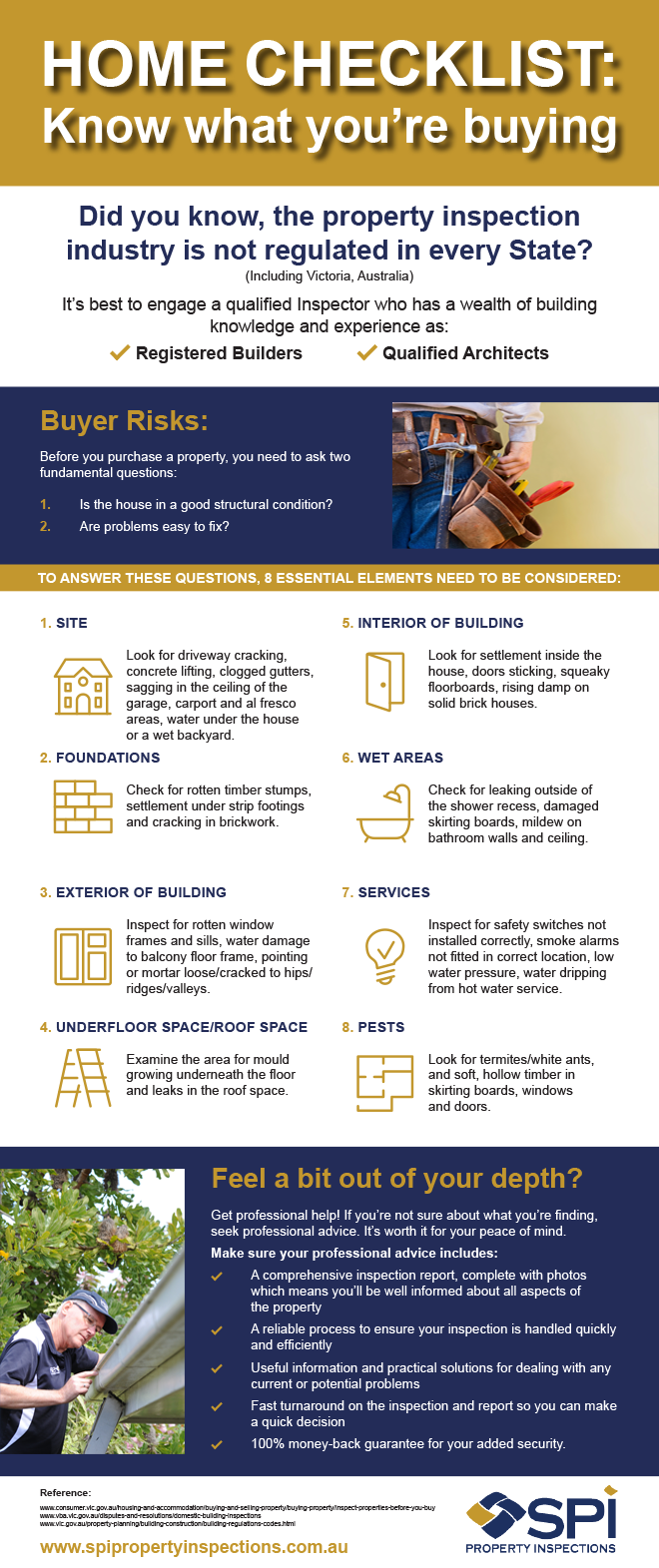Buying a home is one of the most important decisions that a person can make in life, so it’s definitely not something you’d want to rush into without doing your homework. Many prospective home buyers will spend a lot of time considering whether or not the location and the design of a house are suitable, but they may overlook a range of other questions that could be even more important; questions about the actual condition of the home.
Prior to purchasing, it is a good idea to run through the following checklist to make sure there are no unwanted surprises after the sale is finalised:
-
The property
Do an inspection of the property for signs of instability or poor drainage. Is there water pooling under the house or in the backyard? Has the driveway or any concreted areas started to lift or crack?

-
The structure
Look for unexplained cracks in the brickwork, as this could be evidence of a bigger problem. Check foundations for signs of rot and be on the lookout for any signs that the floor may have dropped.
-
The exterior
Examine window frames for signs of water damage or rot, and check brickwork for missing mortar which can provide access to pests like termites.
-
The interior
Open and close doors to make sure they swing freely and aren’t binding and be alert to floorboards that are excessively squeaky. Look for signs of water damage or mould, including in the roof space.
-
The services
Incorrectly installed services have the potential to cost buyers thousands of dollars post-sale, so take the time to test them out. Make sure the water pressure is acceptable and look out for missing smoke detectors, leaking hot water services or faulty wiring.

-
The wet areas
In the wet areas of the home (bathroom, kitchen, laundry, etc.) check for water damage, swollen skirting boards or discoloured grout which could indicate a problem with moisture. A build-up of mildew is also a red flag to be aware of.
You may find that you need to ask further questions when determining if a property is right for you. For example, if you’re planning to use the premises for business purposes, then you will need to check if any specific building requirements apply. If you’re ever unsure, then it can be worth talking to an expert to make sure you’ve got all the answers you need.

